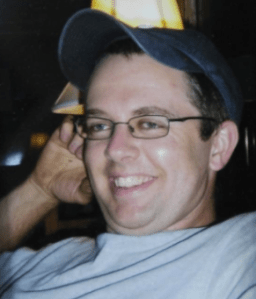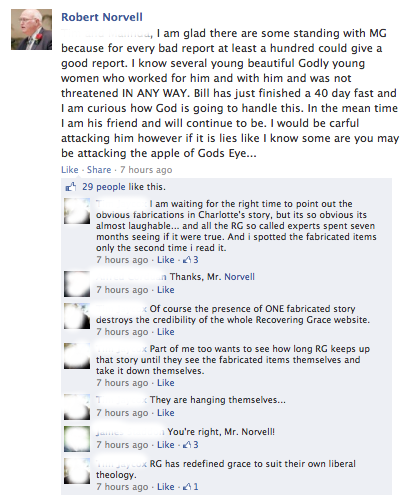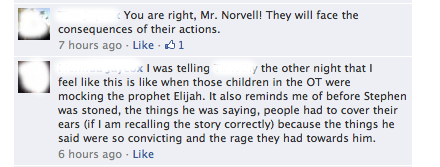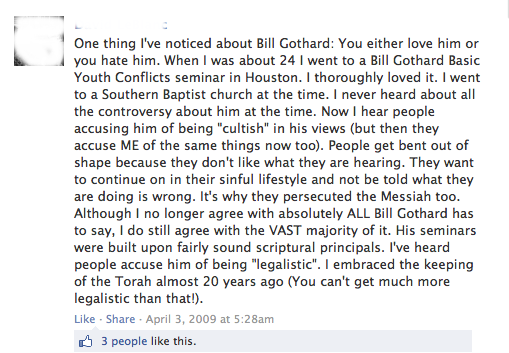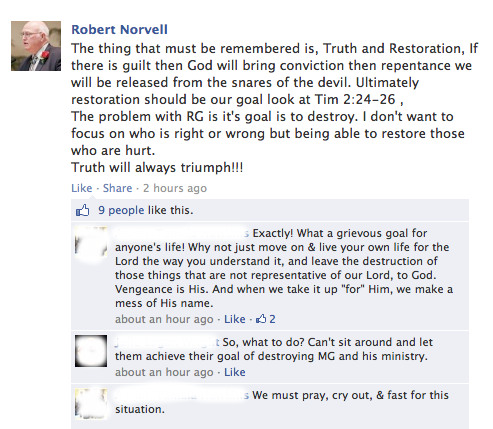
HA note: The author’s name has been changed to ensure anonymity. “Jezebel” is a pseudonym.
Trigger warnings: child sexual abuse, self-injury.
I’m not really sure how to describe my childhood. Blacks and whites don’t really exist in my world, so it’s difficult to say that it was ‘good’ or ‘bad.’ I feel like we put labels like that on things to simplify them.
Unfortunately, nothing is simple.
My earliest memories are very fragmented – my memory isn’t that great to begin with, and PTSD combined with years of drug abuse have further eroded the recesses of my mind. I remember starting first grade. My parents decided to send me to a ‘cottage school’ where I would go to school two days a week and be homeschooled the other three. I knew my friends from the neighborhood went to something called ‘public school,’ but from what I overheard my parents talking about, I was pretty sure that public school was bad. That didn’t make sense to me, because my friends were really nice and their parents seemed nice too. I was curious about public school, but at such a young age, I didn’t pay too much attention to the differences between myself and the other kids.
Around this same time (when I was seven) my father started to molest me. To this day, I don’t talk about it too much.
At the time, I didn’t understand what was happening to me. No one ever taught me about sexual abuse or inappropriate touching, so I thought that what was happening to me was normal. I hated what was going on, but I understood that it was very important for me to pretend that everything was okay. From a very young age, I understood the importance of not making waves and protecting my family’s reputation.
As I was growing up, the only sex education I received was from my time with my father. My mom never talked about sex with me, and since I was homeschooled, I was never given formal sex-ed. In one sense, I was insanely naïve about sex, but at the same time, I was receiving a sex-education from my father that would prove to be incredibly damaging to my psyche. The messages he gave me were that I was powerless, worthless, and valuable only as a pleasure receptacle. It was all very confusing for me.
As young girls, my friends and I used to talk about how we wanted our weddings to be. We would all daydream about what type of guy we wanted to marry and what type of dress we wanted to wear. Me, my sister, and our two best friends were planning a quadruple wedding.
When I found out that a father/daughter dance was a part of a traditional wedding, I remember deciding that I didn’t want to get married anymore. I was willing to do anything to avoid spending time around my father. The idea of having to dance with him made me sick to my stomach.
My parents continued to homeschool me and my three siblings. We stopped going to the cottage school and started going to a homeschool co-op (it was pretty much the same thing, just less organized.) I don’t remember too much from this time period. I know that I wasn’t particularly happy and that I found solace in drawing. I was off in my own little world much of the time, and I had quite a few pets that were my best friends. I didn’t have a lot of friends, and the few I had I didn’t really like; most of the time I preferred to be alone and draw with my dog.
The abuse from my father continued until I was eleven. I can’t tell you how many people have asked me why he stopped. Don’t fucking ask me – go ask that pervert. Maybe he’ll tell you. I can only assume that I was getting too old for him or that he found someone else he liked better. I didn’t ask questions about why he stopped, I was just thankful that he did.
I remember the time period after the abuse stopped a lot better than I remember my childhood. My parents were still together. I can’t begin to convey how terrible this was for me. On Sunday’s my family would attend church together (by this time we had started to attend a home church because traditional church was too secular) and my dad would get up and lead worship. I hated him so much and I didn’t understand why nobody else saw him the way I did. Everybody I knew acted like he was such a great person – after all, he had a great job, he let my mom be a stay-at-home homeschool mom, and to all appearances he was a loving father. My mom never noticed him abusing me, but I don’t blame her for this. I can only attribute it to her own dysfunctional upbringing and the years of emotional abuse she endured with my father.
Even then, as a young teenager, I didn’t have the words to describe what had happened to me. At thirteen I knew very little about sex, and I knew even less about how to express myself. I was full of inner turmoil and hurt, and I had no outlet for it. This is when I found out about cutting. I was reading a magazine article about Angelina Jolie and the article said that she used to cut herself. This was the first exposure I had to the concept of cutting and I decided to try it right away. I got a safety pin and started to scratch my skin. I couldn’t draw blood with my safety pin, but I liked the pain it caused me. For the first time in a long time, I felt some release.
Around this same time, I realized that I could achieve a similar level of catharsis through not eating. I wasn’t entirely aware that what I was doing was considered to be an eating disorder – I just knew that I really enjoyed how it felt when I would starve myself. I came up with crazy diet plans and arbitrary numbers of how many calories I was allowed to eat in a day. Occasionally, I would screw up and binge. I felt horrible about my binges, so I would cut myself to try and feel better. Somewhere along the lines I figured out that I could make myself vomit. From that point on, I would starve myself for days, binge, and then make myself throw up.
This sort of behavior went on for quite a few years. Of course, during this time I did my best to hide my eating disorder and cutting. To outward appearances, I tried my best to look happy, well adjusted, intelligent, and well educated. I simply wanted to be perfect. I was part of a very insular community, so it was fairly easy to hide the symptoms of my problems – after all, everyone was sheltered to the point that they couldn’t recognize the symptoms of emotional disturbances.
In my early teen years, I started participating in competitive speech and debate. My mom signed me up for NCFCA tournaments, and public speaking and debate took over my life. I still kept up with my other school work, but the vast majority of my time was spent designing visual aids for expository speeches, researching debate resolutions, and practicing speeches. I had very little life outside of NCFCA – as has been said by others, the closest thing I had to a graduating class were the people I competed at tournaments with.
During my teen years, I wasn’t allowed to date. Despite the parental prohibition on relationships, I started talking to a boy I met through NCFCA. He became my first boyfriend, and he was the first person I felt I could really confide in. At fifteen, I was looking to him to save me. I told him things I had never told anyone – I told him about my self-harm problems and my eating disorder. We commiserated over our teenage angst and unhappy upbringings. I was never able to trust him enough to talk to him about the abuse I suffered as a child, but this relationship helped me to begin to open up to people.
Of course, the relationship ended badly and dramatically (as most teenaged relationships do.) Still, the simple experience of being able to confide in someone was profound. Shortly after this breakup, I was researching something online, and I stumbled across an article on child abuse. The article talked about sexual abuse and molestation. For the first time in my life I had words to describe what had happened to me. Prior to this time, I had heard people talk about molestation, but I always thought that if what happened wasn’t actual rape, that it didn’t constitute abuse. No one had ever taught me otherwise.
I came unhinged when I read about what molestation actually was. All the evil I had experienced as a child finally had a name. Not only that, I felt justified in feeling that the abuse I suffered was wrong. I spent that whole night crying, cutting, and throwing up.
The next day, I called my best friend. I told her that when I was little my father had sexually abused me. It was the first time in my life I had told someone the truth about my childhood. I was sixteen years old. My friend told me that she already knew – she could tell by the way I acted and talked about my family. She knew I was miserable at home, but she didn’t know how to help me. She was only a teenager herself.
Having the words to describe my experiences made me feel better about myself, but it didn’t help my immediate situation. I still lived at home with my parents and my siblings and I didn’t feel safe enough to tell anyone about the abuse. To make myself feel better, I started self-medicating with prescription pain pills and alcohol. I started to get drunk off alcohol I stole from my parent’s liquor cabinet and I would get high off of Lortab’s and Percocet’s I found in our medicine cabinet. My weight continued to fluctuate and my arms were still crisscrossed with cuts. Because I was fairly isolated, few people took notice of my behavior.
My mom and I started to drift further and further apart – we would fight over the silliest things. I wanted to listen to secular music, and she preferred that I listen to opera and classical. I was a political libertarian and she was a staunch republican. I thought that morality had little place in art, and she believed that the books I read needed to have strict moral messages. We fought a lot.
On one particular day, mom and I had argued over the Harry Potter books (what homeschool child hasn’t been through a conflict involving these books?) I ran upstairs to my room in tears. I wasn’t really depressed about having differing opinions with my mom about Harry Potter – it was simply the metaphorical straw that broke the camel’s back. The weight of all the secrets I was keeping came crashing down on me and I couldn’t deal with it anymore. I felt like I had no way out, that my adolescence would never end. So I did the only thing I could think of – I swallowed a bottle of pills and prayed that it would kill me.
My sister called an ambulance when she came upstairs and found me – I was inconsolable as I told her that I had just swallowed a bottle of pills and I wanted to die. The ambulance came and carted me off to a mental hospital where I stayed for two weeks.
Ironically, the mental hospital was the only place where I came close to being in a public school. Because I was in the adolescent ward, we had to attend school while at the hospital. When I went to science class, I raised my hand and challenged the teacher on her teachings about evolution (that was what I had been taught to do in all my worldview and debate classes.) I’m pretty sure that the staff took this as further evidence of my mental problems.
After I was released from the hospital, I went through a very rough period. I finally told my mom about what my father had done to me. It was an experience that I can only describe as horrific. My mother believed me, and she had me write a letter to our church elders asking them for help. I wrote a detailed letter and told these men what my father had done to me. The church elders responded to my mother and said that both she and I were lying and that we weren’t welcome at that church anymore. To this day, my father still attends that church and is a very active member.
Amidst all this madness, I attempted to finish my senior year of high school. It was chaos. My mom and I cobbled together a transcript that was substantiated by my debate experience, my love of classic British literature, and little else. I was very intelligent, but no one ever really made me complete my math or science homework. I would tell my mom that I did my math or science homework, and for the most part, my word was enough assurance that I was getting a well-rounded education.
When I went to take the SAT I hadn’t studied (literally, I think I cracked the study book one time) and I was hungover. I did very well on the English and reading portion, and I bombed on the math portion. At this point, I didn’t particularly care about school though, and my home life was so hectic that my mom didn’t have time to care either – she was in the process of dealing with a hellish divorce.
During my senior year I was so busy going to therapy and psych appointments that I never got around to applying to colleges. Growing up, I had always wanted to go to college, but in the midst of the wreckage of my parent’s divorce, nobody really had time to help me figure out what I wanted to do with my life or where to apply for school. I got more and more depressed and I started drinking and abusing pain pills even more heavily.
After high school graduation, I was simply drifting through life. I worked a dead-end restaurant job and spent all my spare time at bars (I had a fake ID that I had stolen from someone.) The only friends I had were people I knew from work – very few of my NCFCA friends kept in contact with me and I felt a bit ostracized. Alcohol and pills fixed these feelings though, so I continued to self-medicate.
Eventually I applied to the local community college. I went there for a semester, and I enjoyed it. At the time though I was working fulltime at the restaurant, working weekends at a haunted house, and trying to keep up with a fulltime school schedule. I ran myself ragged – my health started to deteriorate and I ended up in the hospital with meningitis. I would also periodically have to go to the doctor because I got severe kidney infections. One day as I was leaving to go to work, I simply collapsed in the garage – my body was wearing out.
While I was going to community college I couldn’t stop drinking. I would routinely show up to class drunk or high out of my mind. Alcohol was the only thing that helped me feel less stressed. After one semester of college, I dropped out.
After dropping out of school my life became a bit of a blur. I continued to drink myself into a stupor every night because I was severely depressed. After a while, I got fired from my restaurant job because I routinely came to work drunk. Within a few weeks of getting fired, I tried coke for the first time and I loved it. I started routinely doing hard drugs. My drug use culminated in an addiction to heroin.
To support my drug habit, I started working at a strip club. I worked as a stripper and a prostitute for several years before I got arrested for trafficking heroin. My life was a wreck and I had nowhere to go, so I went to rehab. I had tried going to rehab several times before, so I wasn’t sure that it would work for me, but I was out of options. I ended up in a year-long program, and it saved my life.
When I was shooting up heroin and stripping, I didn’t care about my life. I would overdose or get beat up and it didn’t matter to me. I felt like I was a fuckup and that my life wasn’t worth living. In rehab I did the hard work of processing everything that had happened with my family, and as awful as it was, I’m a more whole person for all that.
It’s ironic – while I was in rehab, I was processing with a counselor and I told her about how I was brought up – conservative Christian homeschooler. She was shocked. She said that my story completely reframed how she thought about homeschooling. She had always assumed that homeschooling was a good way to safeguard against having your kids become radically screwed up. I guess I disproved that idea.
Since graduating rehab (most of the kids I competed in NCFCA with graduated college this year – I graduated rehab – ironic, right?) I’ve done my best to live life sober. I attend 12 step meetings and a big part of my recovery is letting go of my resentments. I’m still working on letting go of some resentment I have about my upbringing, but I’m slowly coming to terms with it. In no way do I blame my choices on the way I was raised; I accept complete responsibility for my actions over the last few years. Still, as people we are the sum of our experiences, and homeschooling was a huge part of my experience. My upbringing shaped me into who I am today.
I can’t say that I liked the process of getting here, but today my life is good; I have a good job, I’m clean and sober, I’m not incarcerated, and I have people that love me when I don’t love myself.
It’s been hell to get here, but it is what it is and I’m okay with that today.
